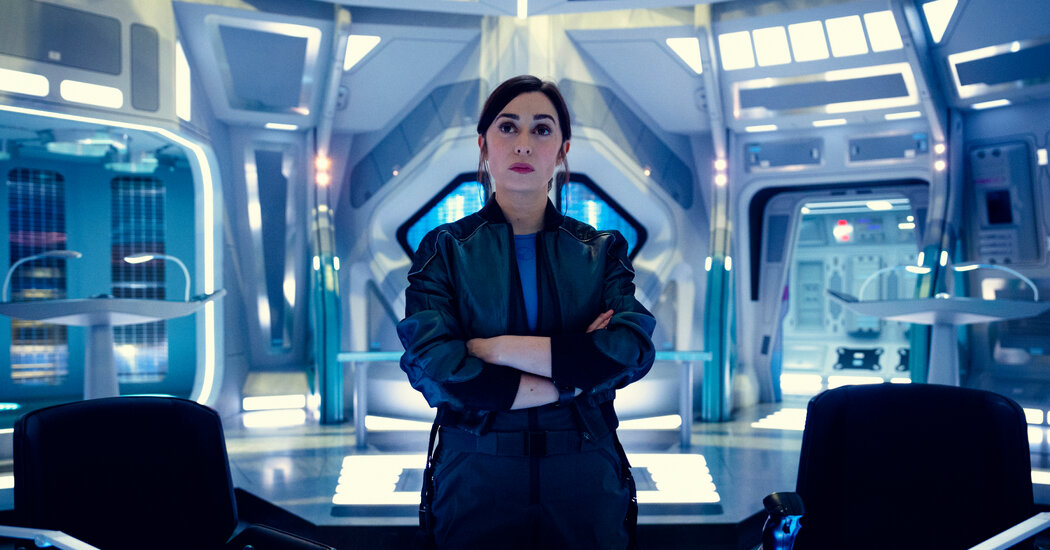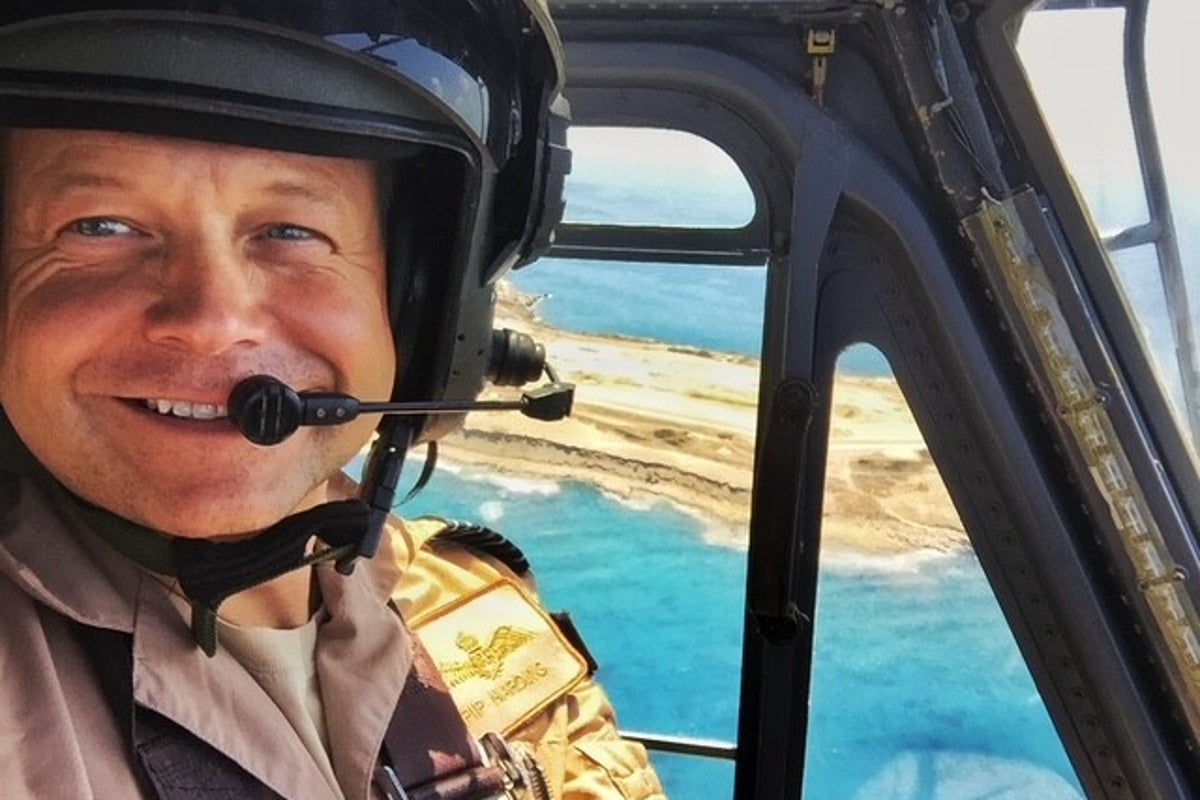
Father-of-five told he has months left to live – and his job could be to blame
A decorated RAF helicopter pilot has been diagnosed with terminal brain cancer that could have been caused by fumes from his aircraft.
Despite this, Philip “Pip” Harding has praised the “potentially life-saving” support he has received from the force.
The 53-year-old veteran of Iraq, Afghanistan, and Northern Ireland, received the shock diagnosis of stage four brain cancer in March 2024.
Initially given only months to live, the Wallingford-based father-of-five underwent a novel treatment that appears to have significantly shrunk his tumour by heating up and destroying the cancerous cells.
The treatment involves 36 sessions which cost £1,000 each and has largely been funded by Pip’s family and RAF colleagues, who were able to raise the whole £36,000 in just two weeks.
Earlier this year, an investigation was launched by the Ministry of Defence (MoD) into members of the military receiving cancer diagnoses after claims some helicopters had exposed crews to toxic fumes.
Some former personnel are also taking legal action.
Pip acknowledged there is “a chance” this may have been the cause of his diagnosis and he might take action on the issue in the future, but the RAF has been “genuinely amazing” and “potentially saved (his) life” with its support.
“Although I’m not taking action right now, it is something that down the line might come up,” he said.
“I don’t know that it’s come from helicopters. I just know that there might be a chance it has.
“I’m not standing here throwing out threats – the Air Force have been genuinely amazing in how they treated me.
“They’ve been so supportive and, with that support, potentially saved my life.
“(The treatment is) extraordinary – it’s not a definite cure, but it seems to be working on me at the moment, which is just tremendous, and I’m so grateful for the support I’ve been having.”
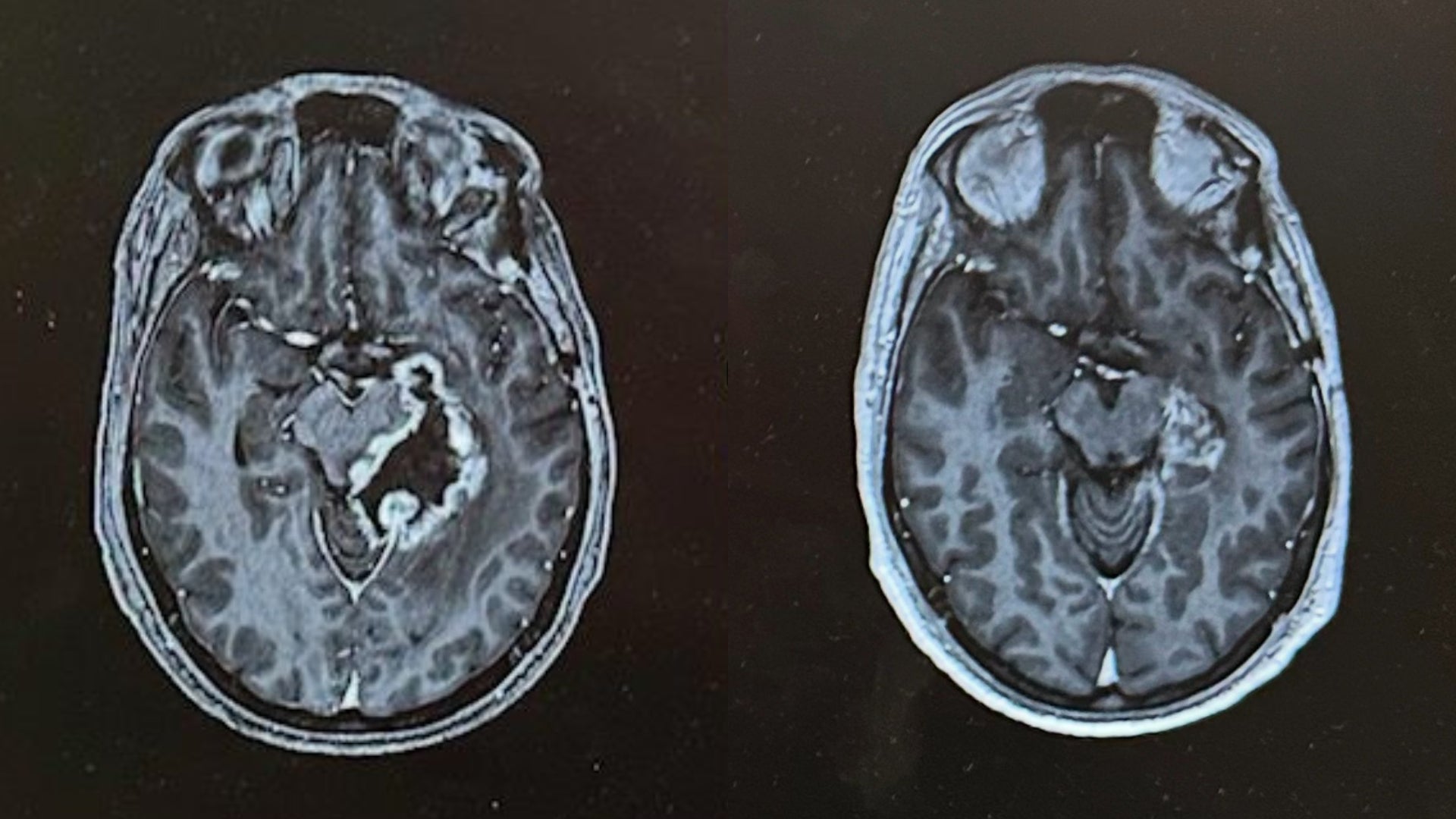
Having been “born into the Air Force” to RAF parents, Pip earned his pilot’s licence at age 17, before he even learned to drive.
After university, where he met his wife Claire, he joined the RAF and was sent to train as a support helicopter pilot – rising through the ranks to group captain and becoming an OBE after tours in Northern Ireland, Iraq and Afghanistan.
Pip piloted one of two helicopters transporting casualties after an IRA splinter group detonated a car bomb in Omagh on August 15, 1998, killing 29 and injuring 220.
But in November 2023, whilst working with US forces in Hawaii, Pip “had a bit of an incident” where he became “unconscious and unable to talk” after receiving a Covid vaccination.
“We thought it must have been a minor reaction to the jab,” he said.
But after further “slightly unusual” reactions, Pip’s wife Claire persuaded him to see a doctor.
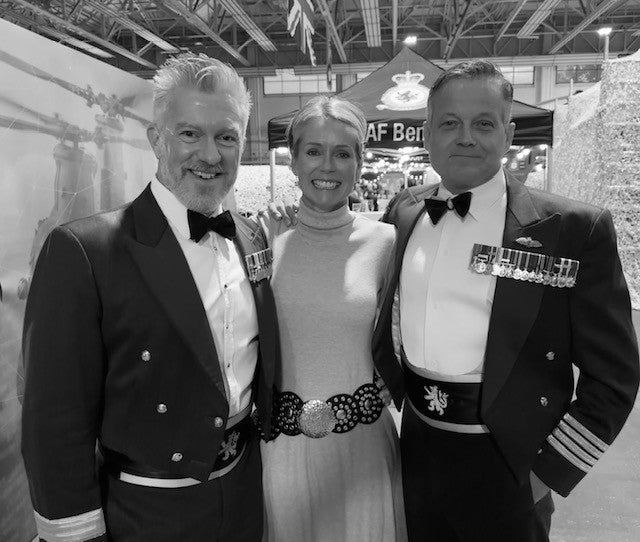
In March 2024, an American major sat him down and broke the news.
“I had this tumour growing on the side of my brain, which probably meant – depending on treatment – that I had anywhere between six and 12 months to live,” Pip said.
“My initial reaction was very quiet.
“As time passed, I became more emotional – you suddenly realise, ‘I’ve got this incredible marriage, this amazing woman, plus five gorgeous children, and I’m on my way out’.”
Pip was told his only option was “a full-scale operation where they pull down the side of your face and pull away a bit of your skull to attack the tumour”.
Over Easter last year, he had a “lovely three-week holiday” with his wife and his five children – Ellie, 25, Johnny, 23, Bobbie, 20, Harry, 18, and William, 15 – where they “talked about it and came to terms with it”.
“Things stabilised for a little bit, but the MRI scans I was having still showed the tumour was fairly large,” he said.
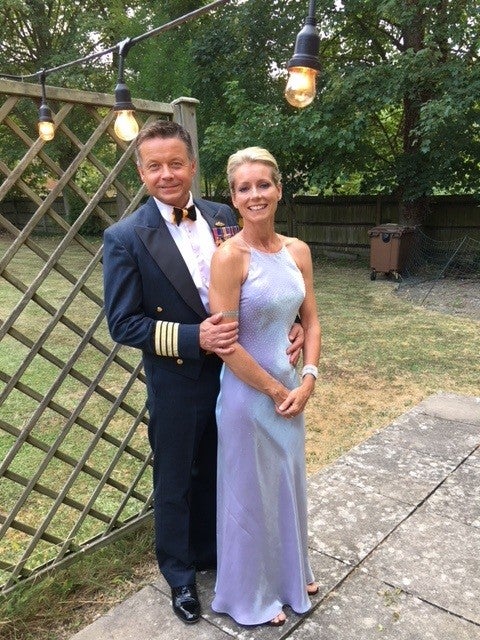
He decided to return to the UK in September 2024. Not long after, a small group of friends organised a dinner for him.
“It was remarkable. Word spread, and literally 400 people turned up to a hangar party dinner,” he said.
“There was a huge light bulb ‘PIP’ on top of the bar. There was an RAF band playing. There was a huge RAF flag, which everyone signed.
“I wasn’t in particularly good nick at the time, but I was able to stand up and say a few words at the end.”
A month later, Pip’s doctor informed him of a new treatment called oncothermia.
Malignant brain tumour (brain cancer) symptoms
NHS
Common symptoms include:
- headaches (often worse in the morning and when coughing or straining)
- fits (seizures)
- regularly feeling sick (vomiting)
- memory problems or changes in personality
- weakness, vision problems or speech problems that get worse
According to the cancer charity Yes to Life, oncothermia involves targeting cancer cells “by passing both focused and controlled heat, and an electric field, through cancer tissue.”
Pip said: “It’s basically heating the brain tumour in your head, but it’s done very cleverly.
“I lie down on the bed, and this thing is cushioned up very close to the left-hand side of my head, where the brain tumour is, and fires in this heat.
“It goes through the outer skin to the tumour and raises the temperature to about 45 degrees Celsius, and basically just destroys the tumour.”
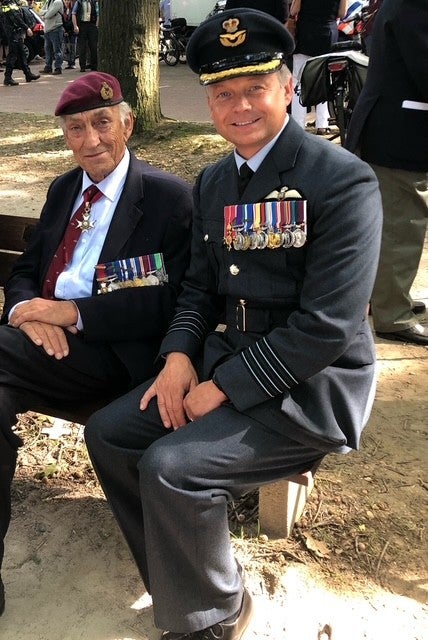
Pip was scheduled for 36 hour-long treatments alongside chemotherapy.
After just six sessions, an MRI scan revealed that the tumour had reduced in size from seven to 1.7 centimetres in diameter.
Unfortunately, the cutting-edge treatment is not covered by the NHS and costs £1,000 per session.
Pip agreed to cover the amount himself, but his family, friends and RAF colleagues refused to hear it.
“Within two weeks, they raised £36,000,” he said.
Pip said he is now half-way through his treatment plan, and praised the “incredible” support he has received through a GoFundMe set up by friends.
“I’m fighting on, and I’m really happy to still be serving,” said Pip, who remains an RAF Group Captain.
“I’ve got stories to tell, and hopefully cadets to talk to, and I’ll continue until I’m genuinely not required anymore.”
Pip’s fundraising page can be found on GoFundMe.






